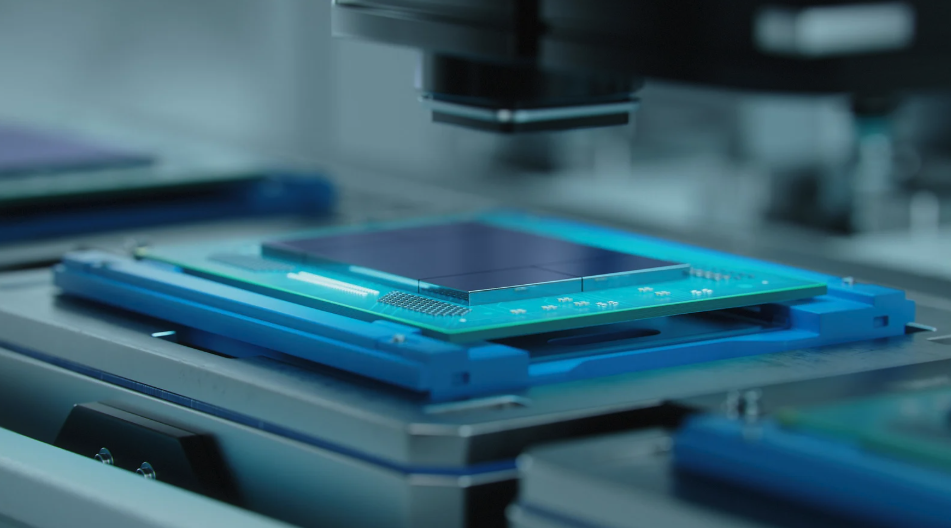The Role of FPGAs in Automotive Technology

More from the Category
In today’s rapidly evolving automotive industry, one component stands out for its important role in enabling advanced features and improved vehicle performance—Field-Programmable Gate Arrays (FPGAs). These adaptable, reconfigurable integrated circuits play a central role in transforming vehicles into intelligent, connected, and highly efficient machines. From advanced safety systems to in-vehicle connectivity, FPGAs enable innovation at every level.
Empowering Advanced Driver Assistance Systems (ADAS)
One of the most significant applications of FPGAs in the automotive sector lies in Advanced Driver Assistance Systems (ADAS). These systems rely on a combination of sensors—cameras, radar, LiDAR, and ultrasonic detectors—to continuously monitor the vehicle’s surroundings and assist drivers with critical tasks like:
- • Lane-keeping and departure warnings
- • Adaptive cruise control
- • Automatic emergency braking
- • Parking assistance and collision avoidance
- FPGAs stand out for their real-time parallel processing capabilities and low latency, which are crucial for interpreting large volumes of sensor data in milliseconds. This enables split-second decision-making, ensuring safer responses to road conditions and potential hazards. As ADAS continues to evolve toward fully autonomous functionality, FPGAs will remain a foundational technology.
Enabling Seamless In-Vehicle Networking

Modern vehicles are essentially data centers on wheels, housing numerous interconnected systems—from infotainment to drivetrain management. FPGAs enable high-speed data transfer and protocol conversion across this complex web of communication, facilitating smooth coordination between:
• Engine control units (ECUs)
• Telematics modules
• Digital dashboards and infotainment systems
They support advanced communication protocols such as Automotive Ethernet, CAN FD (Flexible Data Rate), and LIN, which allow for high-bandwidth applications like:
• HD video streaming
• Over-the-air (OTA) software updates
• Vehicle-to-Vehicle (V2V) and Vehicle-to-Infrastructure (V2I) communication
This interoperability makes FPGAs a key enabler in moving toward connected, software-defined vehicles.
Enhancing Functional Safety and Cybersecurity
With increasing electronic complexity comes the need for robust functional safety and cybersecurity. FPGAs meet both challenges head-on.
In critical systems such as steer-by-wire and brake-by-wire, FPGAs help implement redundant and fail-safe architectures to maintain operation even during hardware failures. On the cybersecurity front, they support hardware-based cryptographic engines, secure boot processes, and access control measures, protecting automotive systems from:
• Unauthorized access
• Firmware tampering
• Malware and cyberattacks
Their deterministic behavior and customizable logic make FPGAs an ideal solution for security certifications like ISO 26262 and ASIL-D compliance.
Industry Leaders Driving FPGA Automotive Innovation
Several tech giants are pushing the boundaries of what FPGAs can do in the automotive space:
• Intel: Offers high-performance FPGAs optimized for real-time sensor fusion, low-latency networking, and AI acceleration. Their Agilex™ series is already being integrated into automotive AI workloads.
• AMD: A pioneer in adaptive SoCs, AMD's Versal™ ACAPs combine programmable logic with AI engines to support autonomous driving, 3D mapping, and edge computing.
• Efinix and Lattice Semiconductor: Innovating with ultra-low-power, compact FPGAs that are well-suited for edge sensing and control in electric and hybrid vehicles.
These companies are shaping the next generation of smart mobility by delivering FPGAs that are faster, safer, and more energy-efficient than ever.
The Road Ahead for Automotive FPGAs
As the automotive sector shifts toward electrification, autonomy, and connectivity, FPGAs will be instrumental in supporting:
• Real-time AI/ML inferencing at the edge
• Energy-efficient battery management systems
• Dynamic thermal management and regenerative braking
• Enhanced driver-personalization features through sensor fusion
With vehicles becoming more software-defined and updatable over the air, FPGAs provide the programmable flexibility needed to adapt to future innovations without requiring new hardware.
Partner With Microchip USA – Your FPGA Supply Chain Experts
FPGAs are more than just building blocks—they’re catalysts for the future of transportation. At Microchip USA, we specialize in helping manufacturers, designers, and innovators source the right FPGA solutions for any automotive application.
Whether you're developing autonomous driving features, optimizing in-vehicle networks, or building secure EV platforms, our semiconductor and IC specialists are ready to help you confidently move forward.
Get expert support, fast lead times, and access to top-tier FPGA brands—all in one place. Contact us today!


